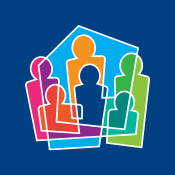Helping A Child With Learning Disabilities Make Friends
Guest Contributor: Amy Fletcher
Studies have found that only 18% of friendships are reciprocated in children with learning disabilities. As a result of having so few friends, children with learning disabilities often shy away from social activities that involve their peers. However, it’s crucial for these children to have friendships as friends improve their happiness, health, and confidence. But how do you help a child with learning disabilities build these relationships?
Sign up for extracurricular activities
4 in 10 people with a learning disability have autism. The two conditions can affect the language and listening skills of a child and make it difficult for them to form friendships. But research shows that participating in extracurricular activities can help. One study found that LEGO therapy boosted social interaction scores in autistic children. While extracurricular activities also help children without learning disabilities to include those that do have them. This is a great way of getting people to accept your child’s autism diagnosis and for planning your child’s short and long-term care. The UNMC Autism Center for children offers a School Consultation Program to help schools give the support that children with autism require, so it’s worth speaking to your child’s school about their participation in the service and how it can be used in the extracurricular activities they provide.
Teach socialization skills
It’s common for children with learning disabilities to misread situations and the way that other children are feeling, and this can hinder their chances of making friends. As a parent, it’s down to you to instill the socialization skills they require to overcome these obstacles. Simply teaching them to say ‘hello’ to others when they first see them is a great start. As your child grows more comfortable with this, suggest they offer a smile to another child on a daily basis. Make sure you ask them which children smile back as when your child is more confident with this social skill, you can suggest they ask the same children things such as ‘how are you?’ and ‘do you want to play?’
Set up a playdate
Once your child has improved their social skills and gotten to know children at their extracurricular clubs, it’s time to set up a playdate. This could be in or out of your home, however, it’s best to limit the meetup to around half an hour to avoid overwhelming your child. Playdates are beneficial for children with learning disabilities as they help them to evolve their social skills as they get used to sharing their toys and thinking about the feelings of others. But make sure you talk to the other child’s parents before the playdate about your child’s disabilities, as well as their likes and dislikes so they can prepare for the playdate just as much as you.
Although many children with learning disabilities find it initially difficult to make friends, you don’t have to accept that this will be the case forever. By putting a few steps into place and teaching vital socialization skills to your child, it won’t be long before they have a couple of close friends to call on.
Related Blogs
How Lifebooks Help Children Understand Their Adoption Journey
Your Go-To Guide for Financial Support When Pregnancy Surprises You
Helpful Links
© 2026 Nebraska Children’s Home Society. Site by Red Branch Media, Inc.

